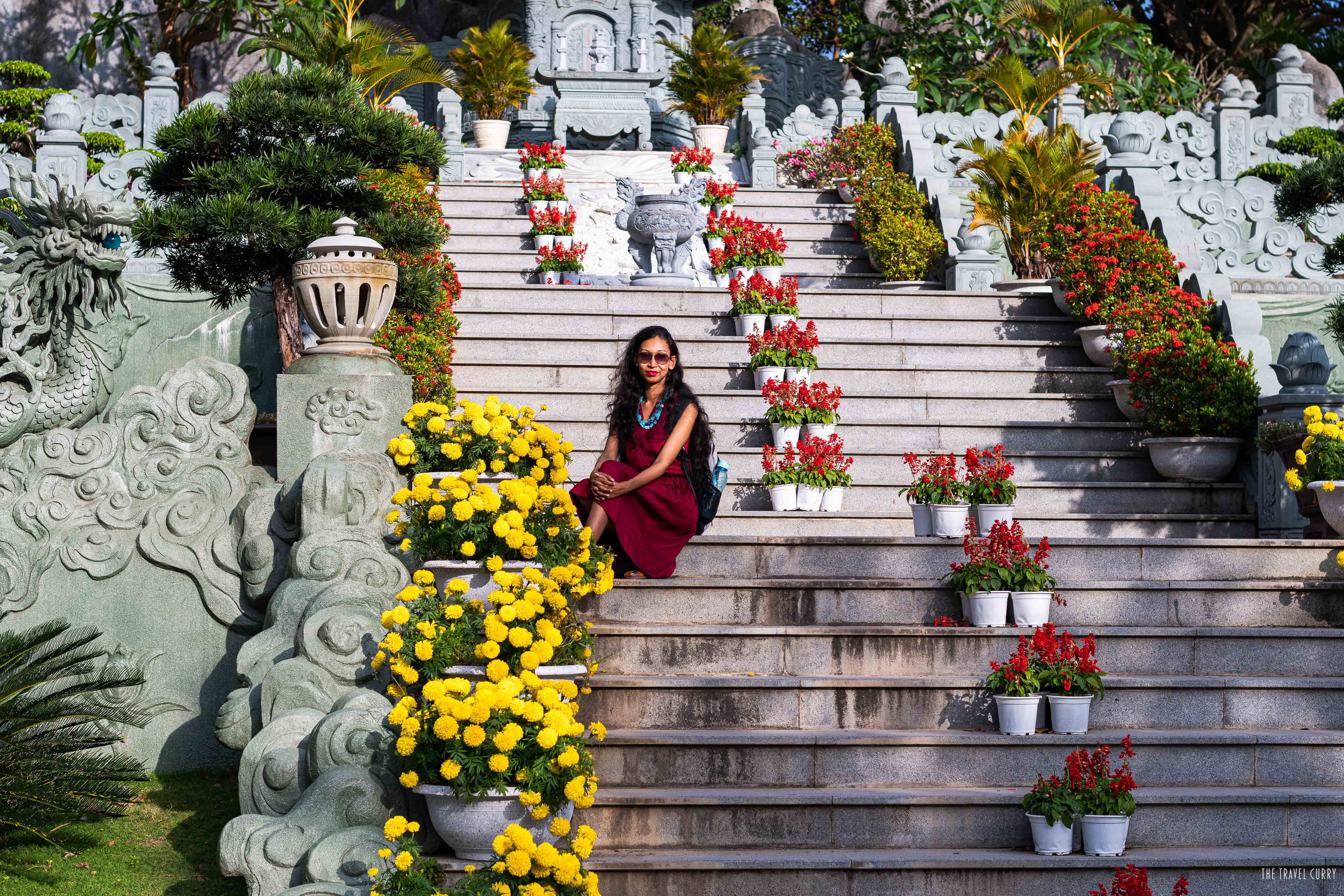
Travelling beyond the boundaries of your country and comfort zone often gives you a new perspective of life. Some travel to break the monotony, life while others travel to explore. Whatever category you fall in, this detailed guide aims to help you with planning a holiday in Vietnam.
Safety Concerns

The first question that comes to our minds while planning a holiday in Vietnam is safety of the place. While researching, several blogs warned us of pickpockets and snatching incidents in broad day light! Not only that, parking mafia also posed a potential threat to tourists. These stories bothered us and we contemplated choosing Vietnam as our holiday destination. There have been few cases in the past but you only need to be alert. Secure your bags and phones in busy places or while on a bike. Loose dangling items draw attention and are likely to be robbed. However, this was prevalent in Ho Chi Minh and not Da Nang. At latter, we were at ease and crime rate was almost zero while in Ho Chi Minh shopkeepers warned us of taking care of our belongings.
What we did – We held on tight to our bags, especially in the crowded marketplace. While I captured with my DSRL, Shilpi kept a close watch. We had decided not to use our phone when either one of us was busy.
Tip for you– Use your camera only when you are at a safe spot, sans a crowd around. Do not venture in vacant lonely spaces alone.
Flights and Visa
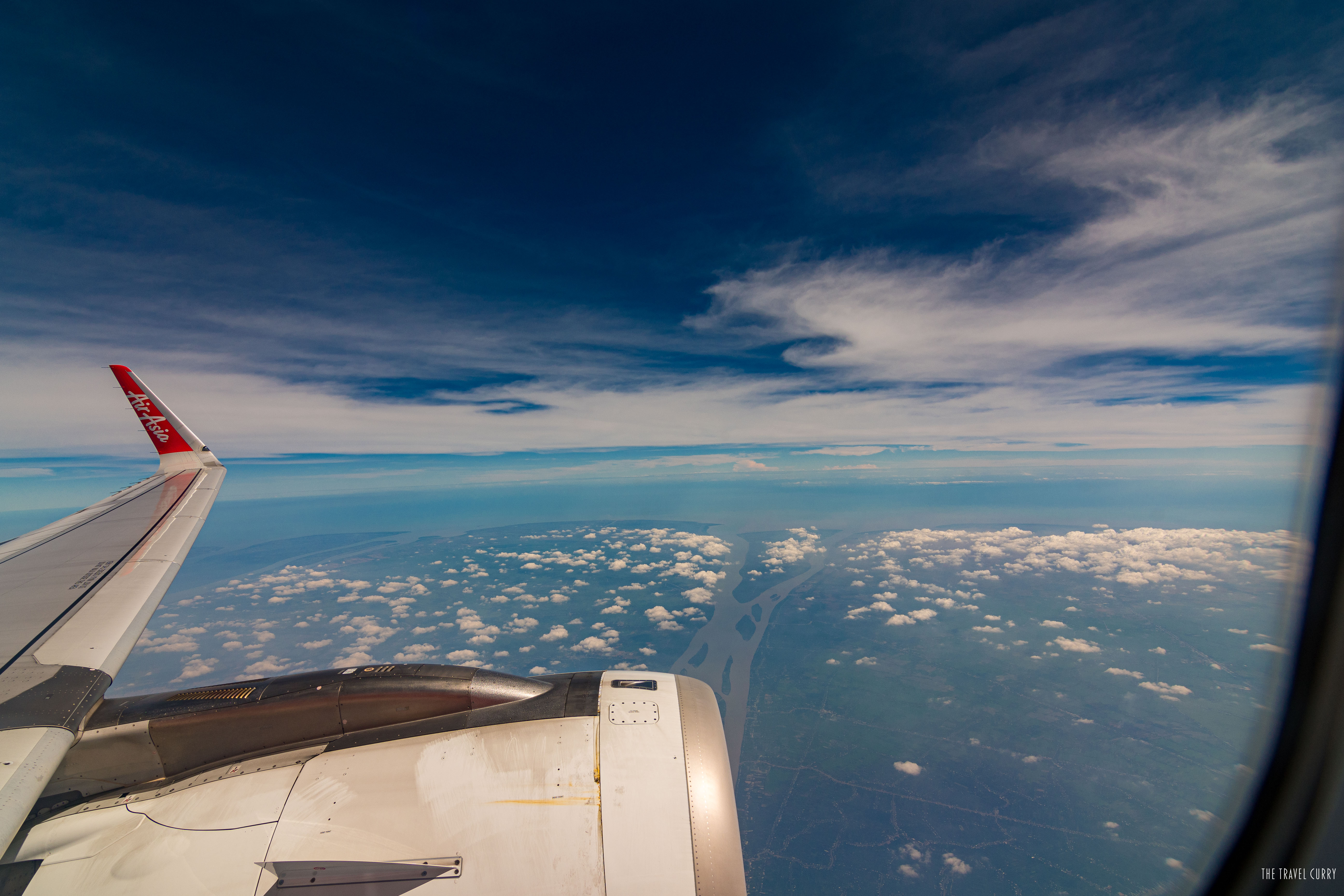
Visa can be easily obtained online from https://evisa.xuatnhapcanh.gov.vn/web/guest/trang-chu-ttdt
Please note when you type E-visa or Visa for Vietnam in Google, most of the results are from third party visa companies. Their charges are quite high. After you fill the details and submit the fees on acceptance, you will receive an email from their immigration department “[email protected]”. Visa on arrival is also a good option but I suggest pre booking is always good.
Mobile Sims
It will be wise to buy sim from the airport. The best network connections are mobifone and Vina wherein they give maximum data balance.
It is advisable to buy a sim card of a company with good coverage and not get fooled by the seller in the name of unlimited network. We had a bad experience with poor network.
Currency- The most important factor
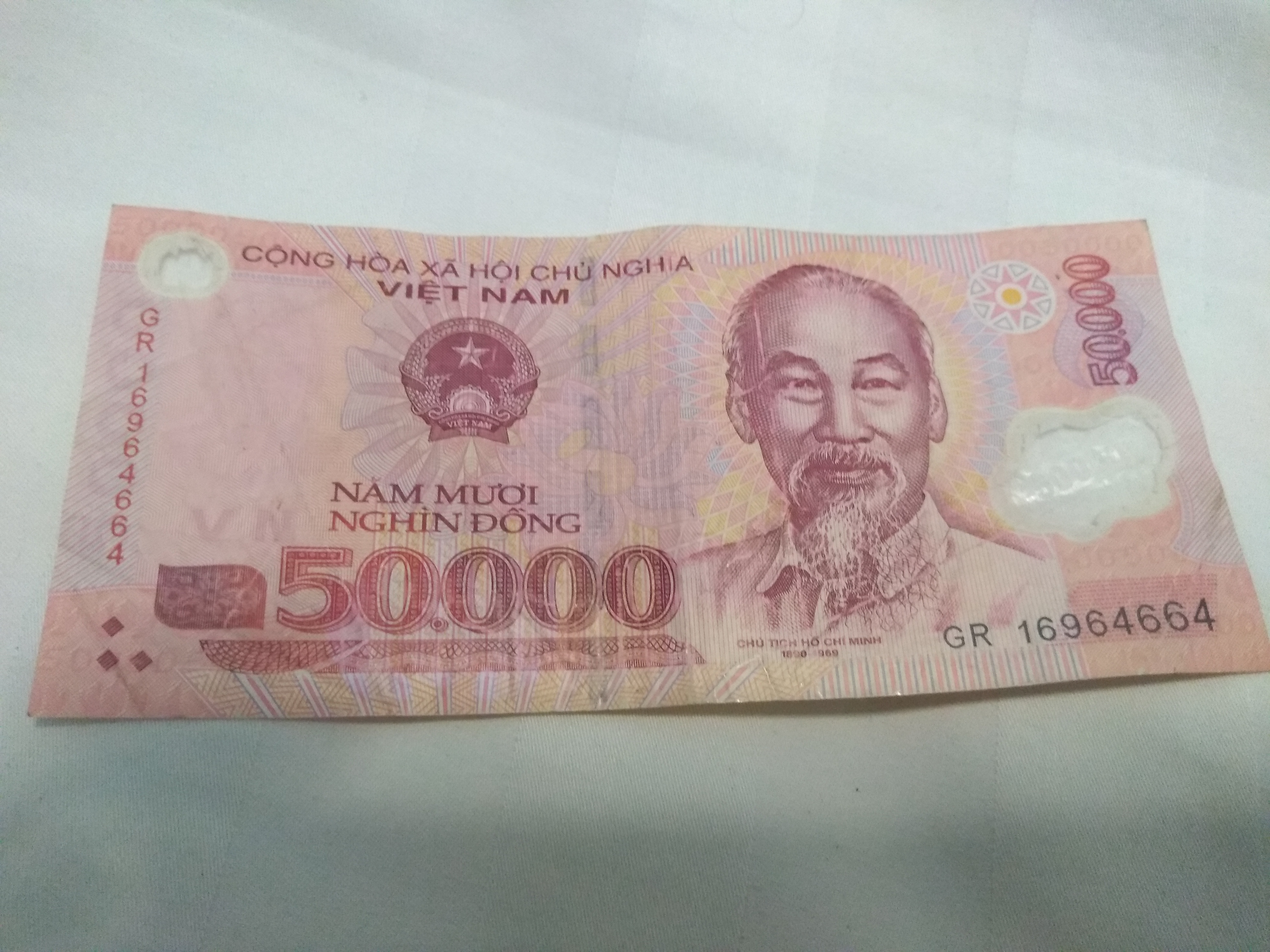
1USD is equivalent of 23000 Vietnamese Dong (VND), also referred to as Dong. Advisable to carry dollars with you as banking systems are not reliable in Vietnam. Your debit/card is prone to hacking. It takes ages to get your money back and, in some cases, you never get it back. If you reach Vietnam on a weekend, all currency exchange offices and banks would be closed. VERY IMPORTANT- Make sure all dollars are clean and without any visible marks or else they will not be accepted during exchange.
What we did– As directed by locals we exchanged our money from a jewellery store. Even travel agencies and small convenience shops provide money exchange facility.
Tip for you– Exchange some dollars at the airport so that you can manage your first day expenses. Exchange rest of your money from an authorized currency exchange only. Many currency notes look quite similar. Do check the notes carefully lest you should be duped.
Roads and Modes of Transport in Vietnam
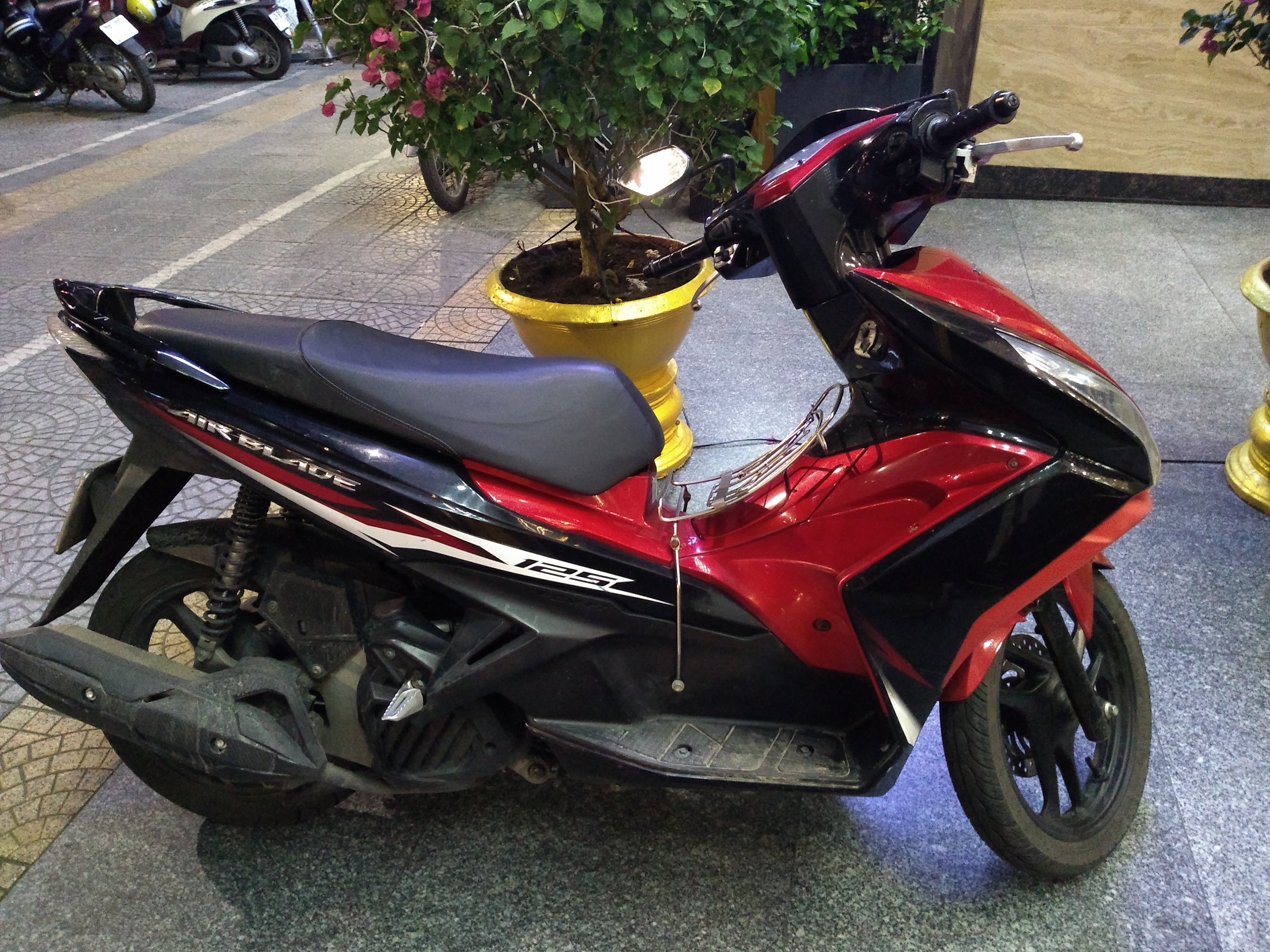
The road conditions are good irrespective it’s a city or a village. Even the less developed areas have good roads. So, you’d be pretty chilled if you are driving.
The best mode of transport in any part of Vietnam is a scooter/bike. The maximum distance I drove was 90 km in Ho Chi Minh as well as Da Nang. The per day rent for scooter varies between 100,000 and 150,000 VND. If you are a group of people or can’t ride a scooter, GRAB comes to your rescue. It’s an app, similar to Uber, for taxi/bike rides and food delivery. It’s super convenient, affordable and easy to operate.
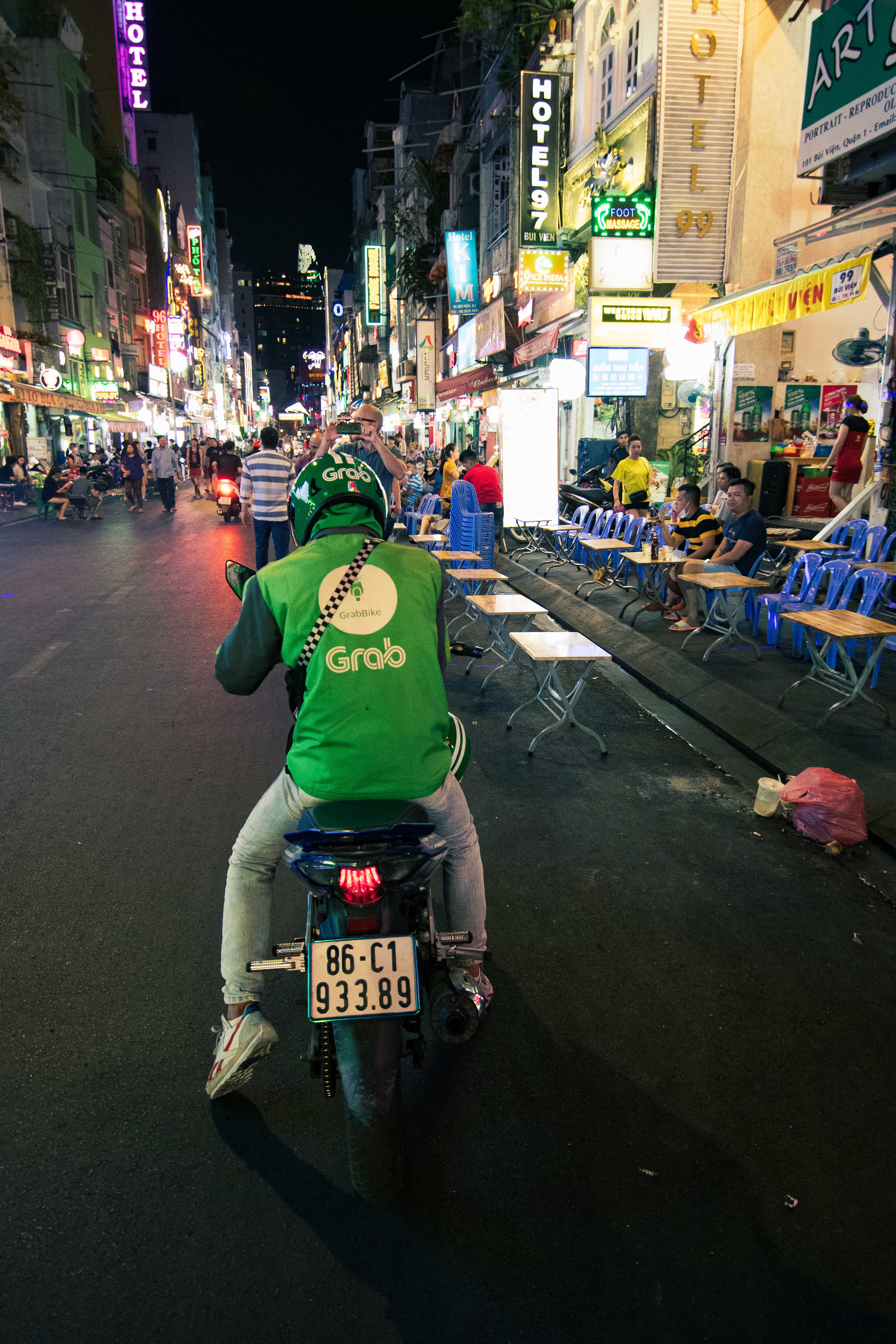
GRAB- The best transport and food delivery app
What we did– We hired our scooter in Da Nang and Ho Chi Minh from the hotels where we stayed in. We also ordered food from GRAB a few times.
Tip for you– Hire scooter from a shop nearest to your hotel. This will save lot of time and effort.
Hotels- Choosing the best
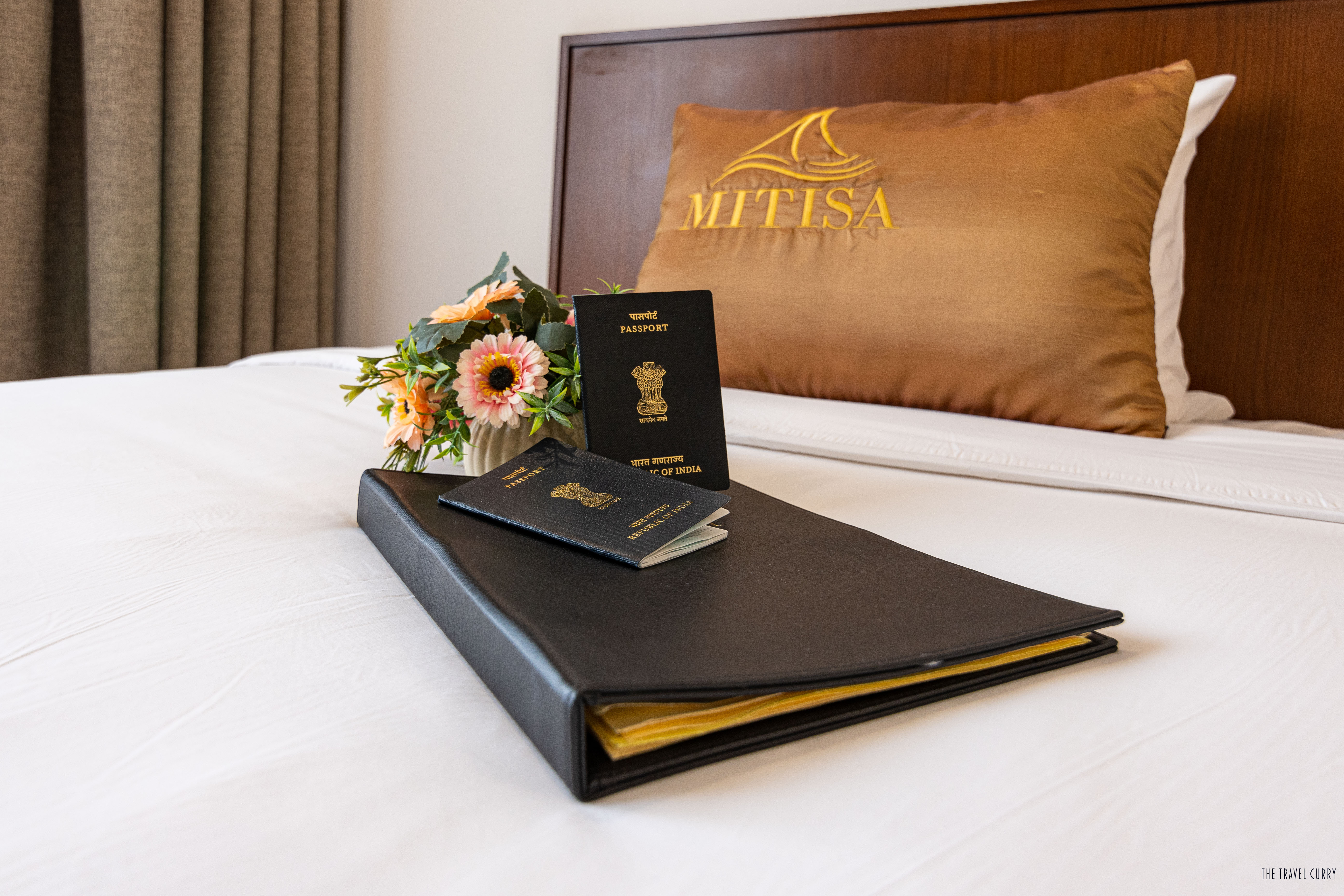
There are plenty of hotel options in Vietnam, especially the modern touristy cities. Country side has less hotels and more home stays. After going through the reviews, property pictures and discussing our budget, we chose Mitisa hotel in Da Nang for three nights. It’s a luxurious hotel in mid size budget. The staff seldom speaks English but they would do anything to make you comfortable. Just use Google translator and boom, the staff would get whatever you want. And then was Hotel Meraki in Ho Chi Minh city. Pathetic, congested, stinky and nothing in working condition. It turned out to be a bag packers’ hotel in the middle of a noisy market with a rude manager, least bothered to listen to any concern.
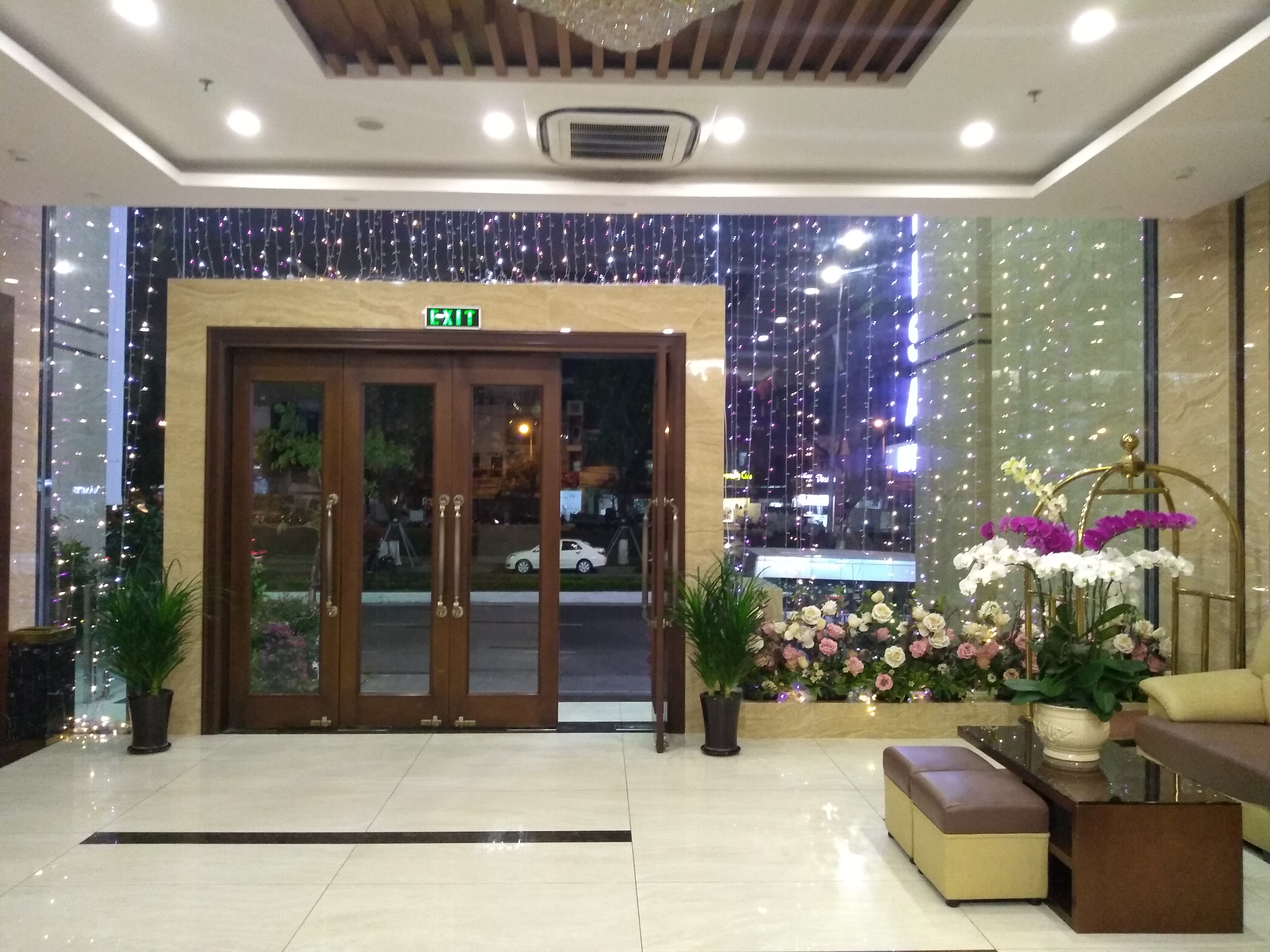
What we did- We met few guests complaining of noise from the market place at night and were checking out early. We requested the manager for a room at a higher level. The trick worked and we thankfully could sleep peacefully at night.
Tip for you- If you choose to stay in a hotel near a market place or in a busy city, it is advisable not to. These hotels are not expensive but you would not get to sleep as the marketplace turn into loud pubs after sunset.
Food- Oops, will vegetarians survive?
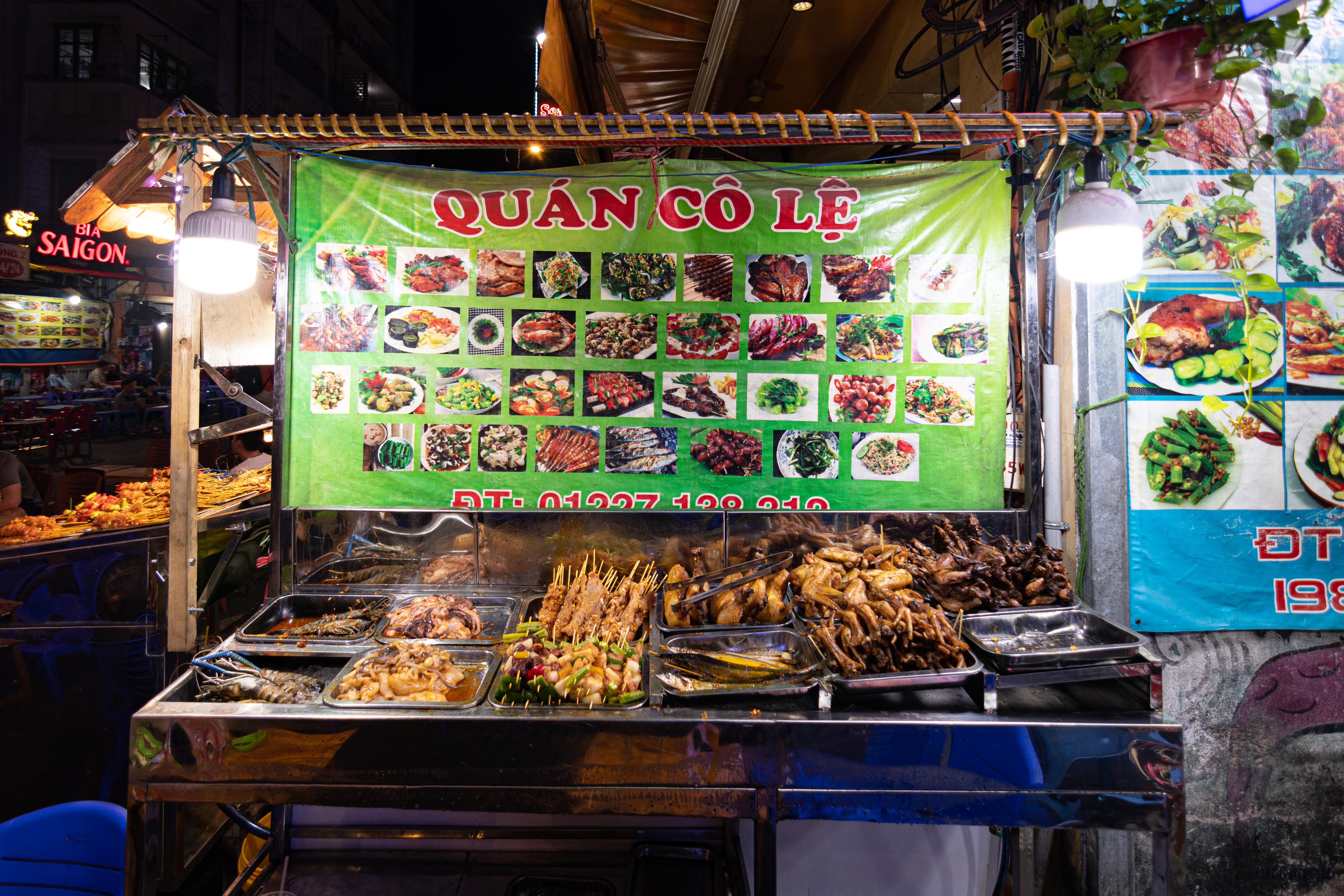
Vietnamese food typically consists of non-vegetarian, especially seafood. Prawns, crab, lobster and the list are endless. Shilpi was quite concerned about this while planning this holiday in Vietnam. So, vegetarians don’t lose heart. There are quite a large number of vegetarian options available. Good hotels have quite a few vegetarian items in their buffet.
Tea is served cold in Vietnam. Like in lot of Asian countries, tea and coffee are chilled beverages, served with ice.
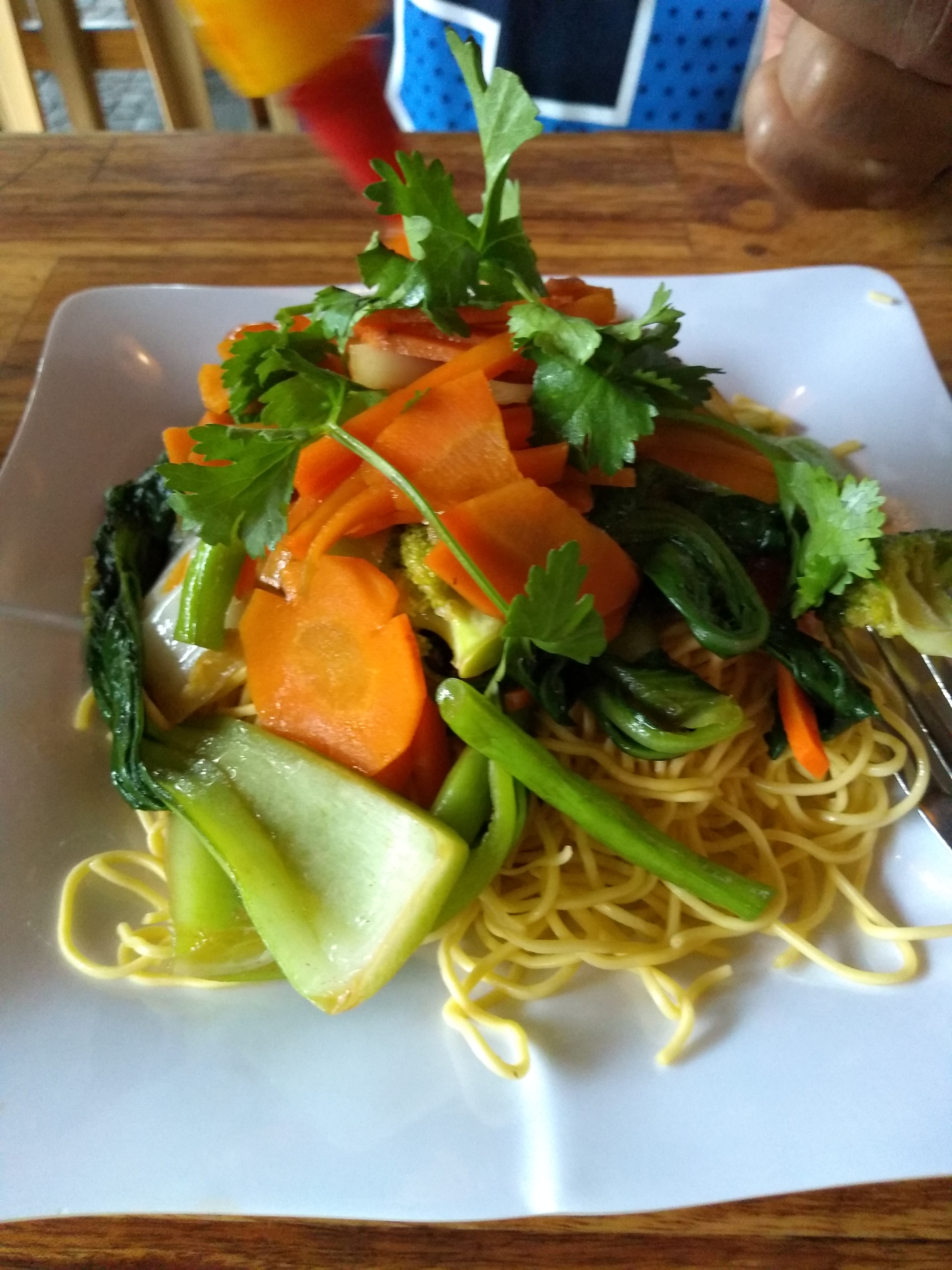
What we did– Shilpi is a vegetarian, so food was an issue for her. We looked for Indian restaurants on GRAB and they did not disappoint. From palak paneer and fried rice to vegetable curry and paneer butter masala, everything was available.
Tip for you– If you stay in District 1 Ho Chi Minh, do try the Indian restaurant Namaste India. Food tastes good here and quite popular too. On an average, a meal for two would cost around 300-400 INR.
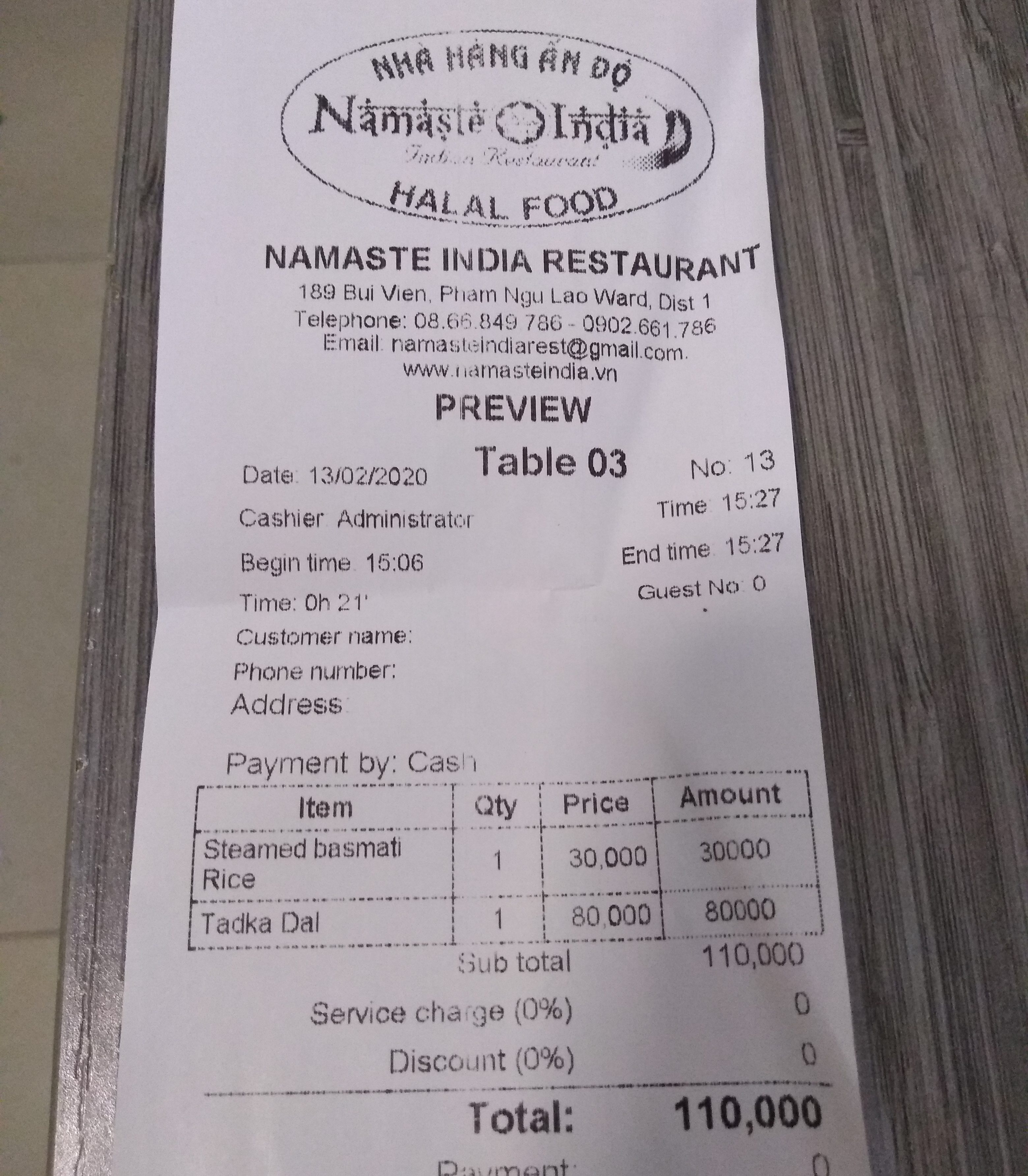
Clothes to pack for Vietnam vacation
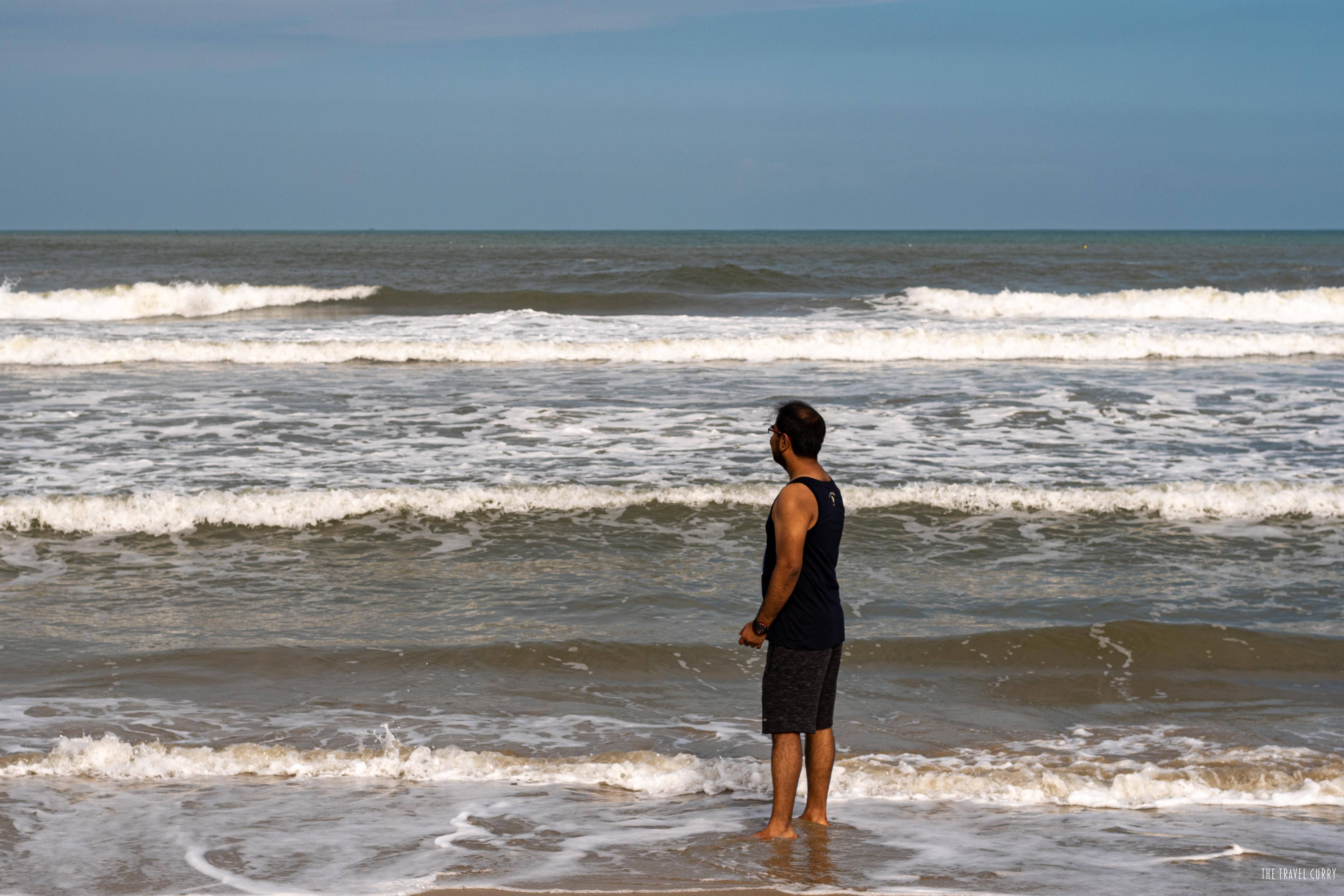
Vietnam has a tropical climate with hot and humid conditions mostly throughout the year. Central Vietnam remains dry and warm during summer from January to August while North Vietnam experiences dry weather from May to October and Southern Vietnam remains dry from November to May. Feel free to pack loose, comfortable clothes for the sultry summer months. You’d generally wear shorts, beach attire, comfy tees, maxi dresses and three fourths with straw hats and sun glasses. Don’t forget to wear your smile 🙂
July to September in Central Vietnam and May to November in Southern Vietnam are rainy months. For monsoon or if you are visiting coastal regions like Da Nang in any season, don’t forget to pack raincoat.
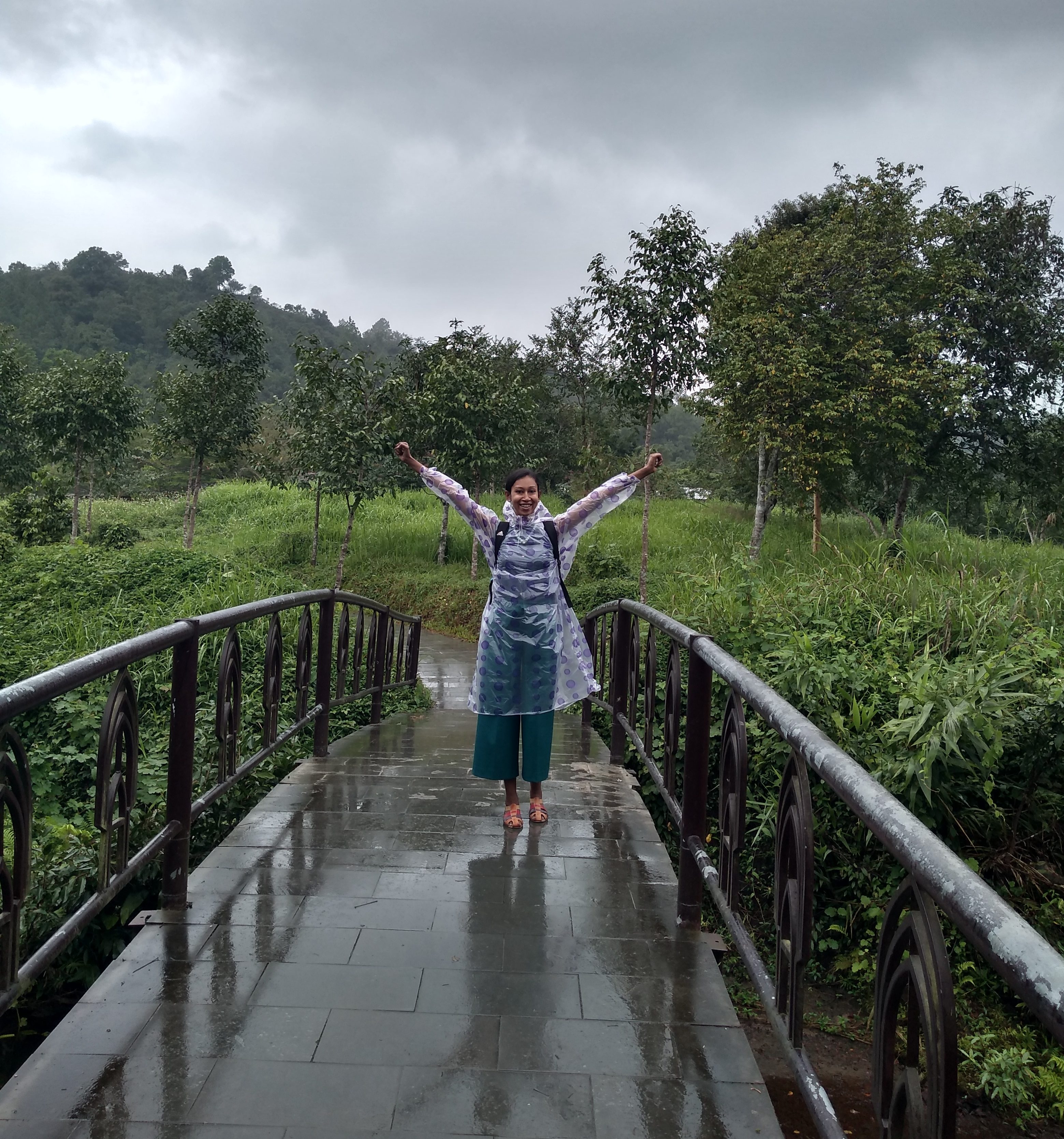
What we did– Since we had forgotten to pack raincoats and were stranded in Da Nang, we had to purchase polybag raincoats for 15,000 Dongs in Me Son Sanctuary. Thankfully, we had sweaters that saved us from the freezing weather in February.
Tip for you- Do not forget to pack something warm while planning a holiday in Vietnam. Woollens will be a savior in case you plan to visit any coastal area or for winter months. Have an umbrella or raincoat handy. None of the religious places we visited had a dress code.
Planning a holiday in Vietnam– A summary
A holiday can be smooth and relaxed if you plan in advance. Get the best deals on flights and hotels by planning in beforehand. Also, buy sim from the airport and be aware when you exchange currency. Overall, it is a safe country and there is a lot to explore in Vietnam besides Ho chi Minh and Da Nang.
P.S- This trip of ours was in February 2020 right before the pandemic outspread. We got back on time, safe and sound. Thanks to the ruling Government for its vigilance and awarness. They practiced all measures to keep COVID under check which resulted in only few cases in Vietnam. We got to learn a lot from this country.
